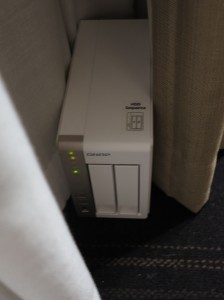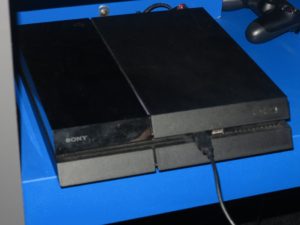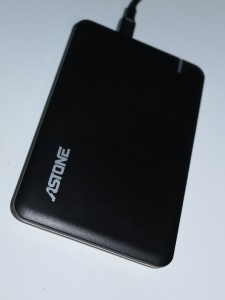The games console that connects to your TV is still relevant to video gaming, especially where the idea is to be able to lean back during gameplay or have a dedicated games machine to use in the living room or recreation room.
The key trends affecting video gaming
Video gaming is becoming a data-thirsty activity where there is emphasis on having a large amount of data being available to the players as they continue to play these games.
Download rather than packaged media
But there are key directions that are affecting video and computer games, especially those targeted towards games consoles. Primarily, they are being made available to download from online storefronts rather than being sold as packaged media or the packaged media is sold as a “get-you-going” option.
A continual supply of extra content available for download
Game players for all game classes are being able to benefit from free or premium downloadable content that is being continually authored by the game studios. This continued availability of extra content is providing for continued playability beyond the first rounds or sessions of the game. In some cases, some studios are even providing time-limited bonus missions or seasonal content in order to keep the players interested.
It extends to most of the games studios working on a high-quality-control regime which includes the supply of frequent updates for each of these games.
Games needing extra data as they go
More games are requiring extra data as you keep playing them. Typically with games of the “open-world” kind, some strategy games or adventure / role-playing games, this is about loading extra scenery, missions or other data that facilitates further game play. In some cases, you completing a mission in a game brings down extra data.
The best example of this would be Forza Horizon 4 which is set in the UK. Here, players complete race challenges to buy individual cars, or they could buy a property to gain access to further challenges and further vehicles. In some cases, they may have access to so-called “barn-find” cars that are discovered when they visit particular buildings and they have to restore these vehicles so that they can be used as competition vehicles. The game even adds seasonality with particular
vehicles, areas and challenges available during particular seasons.
What is being done to answer the problem
USB hard disks or aftermarket hard-disk upsizing
But most setups are requiring the connection of USB hard disks to these consoles as a way to offload extra game data from the console’s hard disk. Or third-party repair shops simply upsize games consoles with newer larger-capacity hard disks and solid-state drives to improve performance or create extra storage space.
A problem that will easily surface with USB hard disks or aftermarket hard-disk upsize installations is the maximum capacity that a games console’s firmware can address for any mass-storage device that the console can handle. In the case of USB hard disks, there will be an expectation that these disks are a single logical volume, something that is common with consumer-electronics and similar devices that use USB mass-storage.
What could be done here
Use of network-attached-storage devices
But games-console manufacturers could look towards using network-attached storage devices as another way of storing extra game data. Here, the NAS system could be about “parking” games data if a game isn’t being played including data for missions and levels yet to be played, to share common data across games machines on the same network for multiple-player multiple-machine gameplay.
It could be feasible to share common data between a regular computer and a games console if the data is the same format for both devices. This would appeal to platforms like the XBox One where there is a strong effort to maintain a common codebase and common data between regular computers and games consoles to avoid duplication of effort in a game’s lifecycle. It is important where the goal is to port a game to as many platforms as possible.
Here, this may be about keeping player-specific data like gameplay-specific data or common data like game assets relating to a specific game. But some game assets such as games or premium downloadable content may be particular to a player or console as a way of binding it to a player who had bought the game or DLC or won the bonus content.
The advantage that a NAS can offer is that the NAS simply defines the maximum storage capacity available to the client device such as through an account-specific quota or a maximum volume offered by that device.
The main problem associated with games consoles and NAS units
Onboarding games consoles to NAS units
Integrating a NAS device may be about a difficult path with the use of the SMB data-sharing protocol being supported in these consoles. It will then require users to supply share names and username / password credentials to their consoles to make use of these network shares. In some cases, the player may have to create a player-private user account on the NAS for player-specific data.
An easier path that the games-console industry and NAS vendors could work towards is a simplified provisioning and device-discovery setup protocol. This could allow for the creation and allocation of player-specific and common data space on a NAS device for storing game data over the network. Such a protocol could be based on the UPnP AV / DLNA protocols for device and content discovery. As well, it could be facilitated on existing equipment through firmware updates or add-on apps for both the NAS and the games consoles.
Other uses
Of course, there is the issue of being able to draw upon one’s own multimedia content library which would be hosted on at least one DLNA-compliant NAS. This could come in to its own with, for example, open-world car-racing games where you can equip your in-game car with a “virtual car radio” that plays audio content from different online or network content sources.
Another direction that may be looked at with higher-performance NAS units of the QNAP or Synology ilk would be to run them as games servers for LAN-based multiplayer multi-machine gaming. The idea may be about a purely local game that is independent of an Internet-hosted online service or it could simply be about creating localised competition elements in addition to the Internet-hosted online competition elements.
Conclusion
A network-attached-storage device can be considered a relevant device for console-based video gaming as an approach towards offloading or backing up video-game data. It can also be used as an approach for sharing common game data amongst multiple consoles or other devices that are playing the same game.





